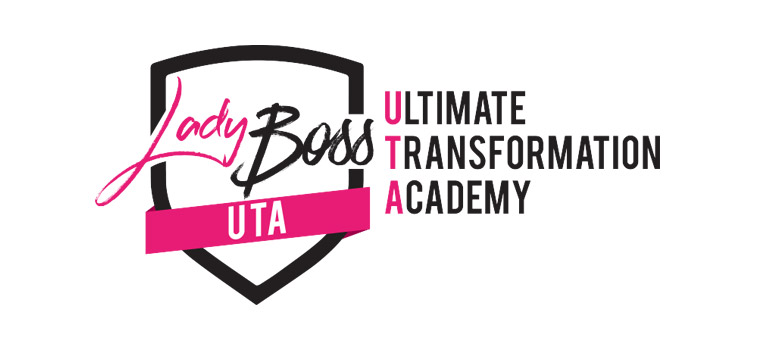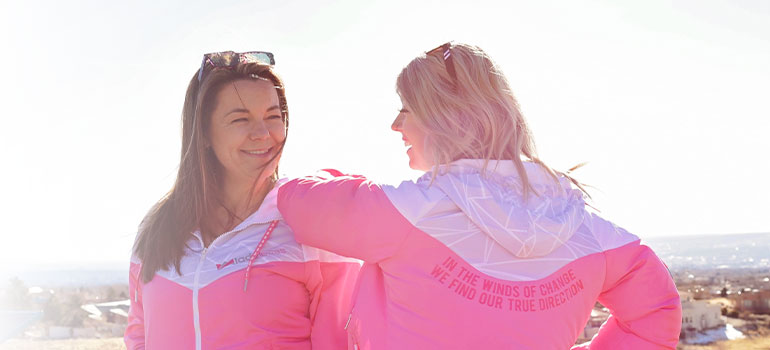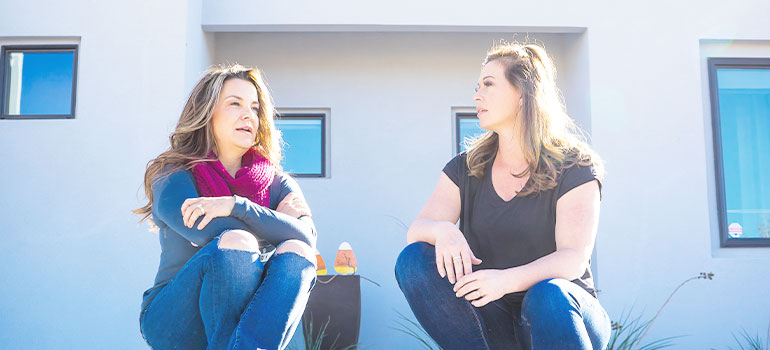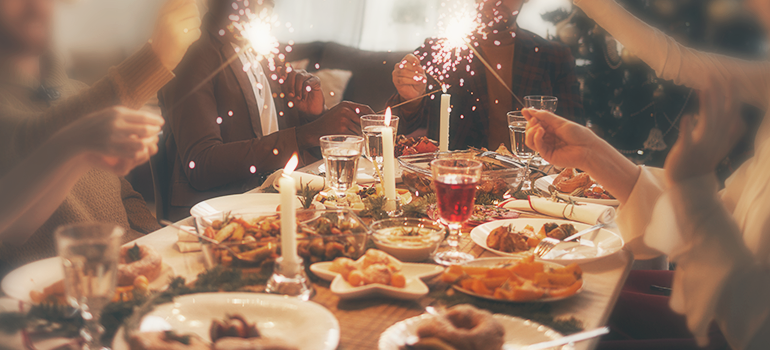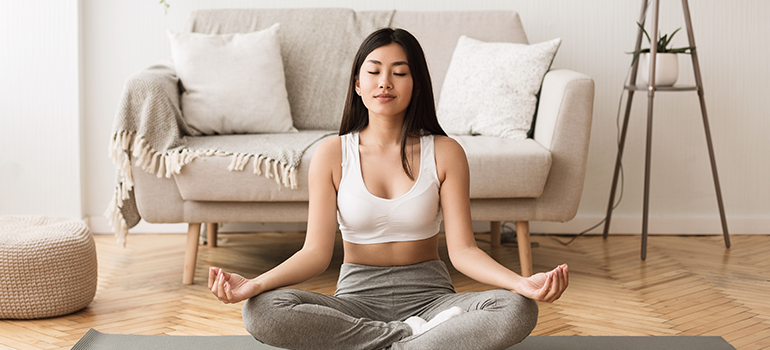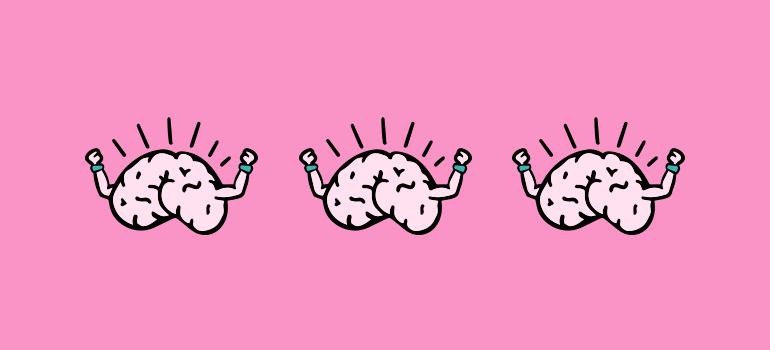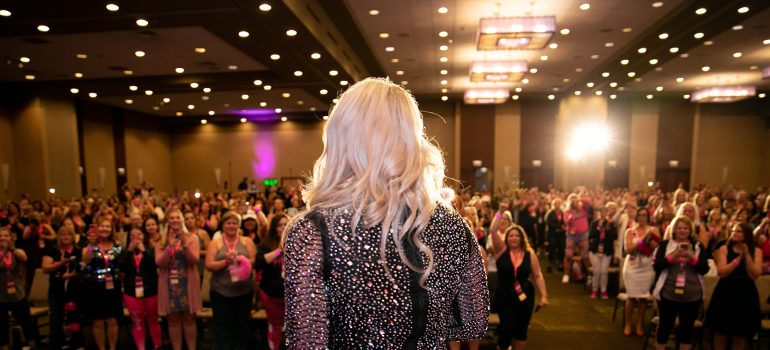Reaching our goals often takes more than just the internal desire to do so. On the outside, our meaningful relationships also shape our reality. Our ability to build relationships with the people and world around us can be our greatest predictor of success.
Positive relationships inspire us, feed our enthusiasm, and even give us the courage to take action toward change.
Simon Sinek says, “Courage is not some deep internal fortitude. You don’t dig down deep and find the courage. Right? It just doesn’t exist. Courage is external. Our courage comes from the support we feel from others. In other words, when someone — when you feel that someone has your back, when you know that the day you admit you can’t do it, someone will be there and say ‘I gotcha. You can do this.’ That’s what gives you the courage to do the difficult thing.”
Knowing this, we can understand just how important it is to our success to build meaningful relationships with those around us. Because, in order to take action, in order to make any change that will last, it’s going to take courage.
How to Foster Meaningful Relationships with Others
Have you ever been told, “you can’t love others until you can love yourself”? It’s true. The healthiest meaningful relationships exist when each of the two people entering the relationship are in touch with themselves first, continually working on personal self-acceptance and love.
In contrast, when we are uncomfortable with ourselves and begin to try to build a relationship, we bring the negative feelings we have for ourselves and project them into the relationship, unintentionally.
Here are four steps to build meaningful relationships that will foster success:
- Learn something new about yourself daily. Be a detective of YOU. Uncover your personal values, beliefs, and desires. Where do they come from? What impact do those desires, values, and beliefs have on your life now? How can you grow from what you’ve learned?
- Love yourself, first! As you discover new pieces of who you are, why you are the way you are, and how your past has shaped your current reality, honor the learning and acknowledge your growth. It will be tempting to judge yourself, to criticize. Instead, understand we are all humans worthy of love. Give yourself the gift of love and understanding. Be grateful to yourself for the opportunity to learn, grow and make positive changes for your future. In all your self-development and discovery, begin from a place of love and compassion-just as you would for a spouse, a mother, a sister, a grandmother, or a child.
- Take an inventory of all of your current relationships. Create a list of all of the people that are a part of your life. At home, work, online, at the gym, in your church. List them all. Then, next to each name place a (P) beside each of your positive relationships that have a positive influence on your desired goals. Place an (N) if they have a negative influence on your goals. If they are neither positively or negatively affecting your success use the symbol (-). When the assessment is complete, it should be which relationships should be fostered to further help you reach your goals. This would be the positive relationships (P). There will be cases in which you need to let go of a negative (N) relationship. It’s OK to let them go in order to open up space for more meaningful relationships.
- Don’t stay stuck in the small talk. Build positive relationships from deep conversation topics. Deep conversation topics often require you to be vulnerable. These discussions will flood you with emotions, demand you to have compassion and allow you to grow in love of self and each other. In all meaningful relationships, you begin to build, seek to engage in deep conversation topics that include your values, beliefs, and desires. Use the graphic for some ideas of questions to discuss to help you build meaningful relationships.
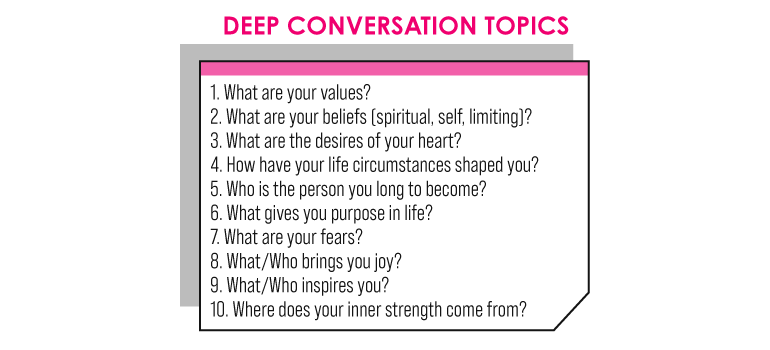
Build Your Tribe
From these meaningful relationships, you begin to surround yourself with like-minded individuals that inspire the changes necessary to reach and maintain your goals.
In the LadyBoss®Personal Results Coaching Program, a key element and predictor of client success is the engagement within small groups of women losing weight together. These small groups foster deep connecting relationships, where the desired outcome for all individual women is similar — to live healthier lives.
From this common goal, and through forged relationships, these women experience longer, lasting progress toward their goals as they build positive relationships of trust, understanding, acceptance, and accountability.
It’s common for women to feel disconnected from peer groups and even family when they decide to become healthier and happier. Unfortunately, when they try to change, they often meet resistance from those they love. For this reason, it’s necessary to find a sisterhood so they can surround themselves with others who understand what they are going through.
These “sisters” can provide inspiration, understanding and the necessary peer support to sustain a woman’s courage to pursue her goals, dreams, and desires.
How to Create Positive Relationships with Your Environment
We don’t often think about our relationship with our environment, but it’s equally as important as that of our relationships with other people. Our environment can easily shape our behavior. The way in which we respond to environmental cues can unintentionally dictate our success or failure. In order to improve your chances of success in reaching your goals, you also need to learn how to build relationships with your environment.
For instance, our feelings and emotions are constantly responding to our environment. In our homes, at work, in our car — all of these spaces say something about who we are and who we are trying to become. James Clear, the author of “Atomic Habits,” offers a fascinating perspective on how our relationships with our environments can positively or negatively affect our habits.
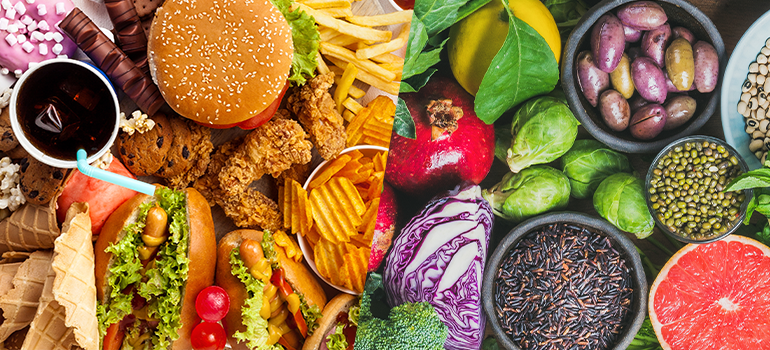 The kitchen of a healthy person and the kitchen of an unhealthy person will have comparable differences. For instance, when you walk into the kitchen in which a family has taken on healthy lifestyle changes you’ll notice things. Fruits and vegetables, whole grains, and lean proteins as available meal options. In contrast, a person that feels unhealthy, or has no desire to be healthy may operate in a completely different kitchen space filled with prepackaged foods and easy to grab sodas. Their trash receptacle might be filled with boxes and bags from fast-food joints.
The kitchen of a healthy person and the kitchen of an unhealthy person will have comparable differences. For instance, when you walk into the kitchen in which a family has taken on healthy lifestyle changes you’ll notice things. Fruits and vegetables, whole grains, and lean proteins as available meal options. In contrast, a person that feels unhealthy, or has no desire to be healthy may operate in a completely different kitchen space filled with prepackaged foods and easy to grab sodas. Their trash receptacle might be filled with boxes and bags from fast-food joints.
In both scenarios, the healthy person and an unhealthy person, have created a relationship with their environment. A relationship that can be changed to create their desired outcomes.
Think about the environment you’ve created within your own spaces.
In your home…
At work…
In your car…
As you look around, what do you see?
Does your environment inspire you to move more, eat healthier, and do the things that will bring you closer to your goals?
If not, what needs to change? How does your relationship with these external forces need to change?
The idea is to understand how your environment can create positive and negative emotions and feelings that drive your actions. Then, give yourself the ability to create positive relationships with your environment by changing what you can to make healthier choices the easier choices.
Taking Inventory of Your Environment
Take an inventory of everything you see during the course of your day.
When your alarm rings and you see the time what are the emotions that follow?
You make your way to the kitchen for breakfast, does the food excite you to fuel your body?
The outfit you put on for work, does it inspire you to make a difference today?
When you get in your car, does the station lift you up? Does the protein shake in your cup holder give you the willpower to drive on by the fast-food joints?
What do you see when you enter your office? A quote that solidifies your desire to change the world?
When you open your desk drawer, midday for a snack, are the options at your fingertips healthy snack options for the healthy person you are becoming?
When you get home after work, do the foods in your pantry encourage you to cook a healthy meal for your family?
Does your bedroom foster healthy sleep patterns?
In all of our environments, we are continually creating relationships that will either foster our success or sabotage us. Design your environments to inspire you, to encourage your success, and to make the right choices the easy choices.
Take Steps Now
Our success in life is meticulously intertwined with the relationships we have, both personally and environmentally. The relationships we create, build and consistently foster over our lifetime create our identity.
These relationships shape the person we need to be and the person we hope to become.
Our positive relationships can save us. A healthy relationship with food and exercise can save our lives.
Our positive relationships with others and our environment can save us from depression, from giving up, from our negative thoughts and self-limiting beliefs about ourselves, our capabilities, and what our future can hold.
Four small words, from someone you’ve built a meaningful relationship with, “I believe in you” can propel you infinitely forward on your road to success.






